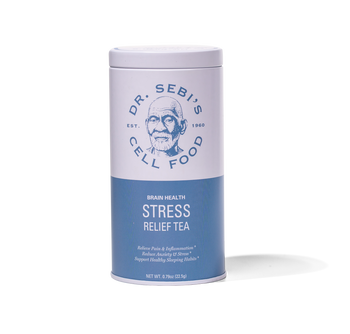Stress has become so woven into modern life that many people view it as normal. Deadlines, financial pressures, endless notifications, and even environmental factors create a constant state of tension. While some stress can be motivating, chronic stress is harmful. Left unchecked, it can weaken the immune system, disrupt hormones, impair digestion, and contribute to chronic disease.
The good news: the nervous system has an incredible capacity to reset and recover. By understanding how stress affects the body and learning natural strategies to calm the nervous system, we can reclaim balance, resilience, and health.
How Stress Impacts the Body
Stress is not just a mental experience—it triggers a full-body response. When the brain perceives a threat, the sympathetic nervous system activates the “fight-or-flight” response. Adrenal glands release adrenaline and cortisol, preparing the body to act quickly.
Short-term, this response is protective. But when stress becomes constant, the body remains in high alert, and problems arise.
Effects of Chronic Stress
-
Immune Suppression: Chronic cortisol release weakens immune defenses, leaving the body more vulnerable to infections.
-
Digestive Issues: Stress diverts blood flow away from digestion, leading to bloating, indigestion, or irritable bowel symptoms.
-
Hormonal Imbalance: Cortisol disrupts the balance of sex hormones and insulin, affecting metabolism, energy, and reproductive health.
-
Cardiovascular Strain: Prolonged stress increases blood pressure and heart rate, heightening risk of heart disease.
-
Mental Health: Anxiety, depression, and mood swings often stem from chronic activation of the stress response.
The Nervous System: Sympathetic vs. Parasympathetic
The autonomic nervous system governs involuntary functions like heart rate, breathing, and digestion. It has two primary branches:
-
Sympathetic Nervous System (SNS): Activates during stress, mobilizing the body for action.
-
Parasympathetic Nervous System (PNS): Promotes relaxation, recovery, and healing—often called the “rest-and-digest” mode.
Balancing these two systems is essential. Many of us spend too much time in sympathetic overdrive and not enough in parasympathetic restoration.

Natural Strategies to Calm the Nervous System
1. Breathwork
Breathing is one of the fastest ways to influence the nervous system. Slow, deep breaths signal the body to shift into parasympathetic mode.
-
Box Breathing: Inhale for 4 seconds, hold for 4, exhale for 4, hold for 4. Repeat for several rounds.
-
Diaphragmatic Breathing: Breathe deeply into the belly instead of the chest, expanding the diaphragm.
2. Movement and Exercise
Gentle movement reduces stress hormones and stimulates endorphins. While intense workouts can sometimes raise cortisol, moderate practices like yoga, tai chi, or walking regulate the nervous system.
3. Nature Therapy
Spending time outdoors lowers cortisol, reduces blood pressure, and calms the mind. Just 15 minutes a day can reduce stress and boost your mood. Grounding is ideal whether digging your feet in the sand, standing on grass, or even gardening at home. Exposing yourself to nature has a significant effect on your stress levels.
4. Nutritional Support
Certain foods and herbs help the nervous system adapt to stress:
-
Magnesium-rich foods (leafy greens, nuts, seeds) support relaxation.
-
Adaptogens like tila, chamomile, and muicle help regulate cortisol.
-
Herbal teas (chamomile, blue vervaine, valerian root) promote calmness.
5. Mindfulness and Meditation
Mindfulness practices train the brain to stay present, breaking cycles of anxious thought. Regular meditation reduces activity in the amygdala (the brain’s fear center) and strengthens resilience.
6. Restorative Sleep
Quality sleep restores the nervous system. Setting consistent sleep routines, reducing screen time before bed, and creating calming nighttime rituals all support deeper rest.
7. Touch and Connection
Physical touch—whether through massage, hugs, intimacy, or even petting an animal—triggers oxytocin release, a hormone that counters stress.
The Science of Relaxation
Recent studies confirm the biological benefits of natural stress-reduction strategies. Research in Frontiers in Psychology (2022) showed that even 10 minutes of mindful breathing lowered cortisol levels significantly.
Another study found that people who regularly spent at least two hours in nature per week reported higher well-being scores and reduced anxiety. Similarly, adaptogenic herbs like chamomile have been clinically shown to reduce stress and improve sleep quality.
These findings confirm what traditional healing systems have taught for centuries: balance and recovery are built into the body’s design. We simply need to engage with practices that activate them.
Dr. Sebi’s Perspective on Stress and Healing
Dr. Sebi often spoke about the interconnectedness of mind, body, and environment. His teachings emphasized that stress disrupts natural balance, making the body more vulnerable to disease. Alongside his nutritional guidance on alkaline, plant-based foods, he recognized the importance of harmony, peace, and natural living.
"But as you know, that when you are sick mentally or emotionally you are totally unaware as to your behavior." - Dr. Sebi
Applying his philosophy to stress management means not only nourishing the body with clean foods but also cultivating inner calm and respecting the body’s need for recovery. Just as food can heal, so can rest, stillness, and mindful living.
Everyday Practices to Build Resilience
-
Morning Rituals: Start the day with 5–10 minutes of deep breathing, gentle stretching, or journaling.
-
Tech Boundaries: Reduce exposure to constant notifications, which keep the nervous system on alert.
-
Mini Breaks: Pause for short, mindful check-ins throughout the day—stand up, stretch, breathe.
-
Gratitude Practice: Reflecting on three things you are grateful for daily can shift the nervous system toward calm and positivity.
-
Creative Outlets: Art, music, or writing help discharge stress and provide emotional release.
Frequently Asked Questions
How do I know if my nervous system is stressed?
Signs include shallow breathing, racing thoughts, muscle tension, digestive issues, or difficulty sleeping.
Can natural strategies replace therapy or medication?
While these practices are powerful, severe stress or anxiety disorders may require professional support. Natural approaches complement, but do not always replace, medical care.
How quickly do these techniques work?
Some, like deep breathing, can calm the body within minutes. Others, like meditation or adaptogens, build resilience over weeks of consistent practice.
What if I don’t have time for long stress-reduction routines?
Even 2–5 minutes of focused breathing, stretching, or stepping outside can reset the nervous system. Consistency is more important than duration.
Conclusion
Stress is inevitable, but suffering from it is not. By understanding how the nervous system responds to stress and intentionally engaging practices that restore balance, we build resilience. Breathwork, movement, nature, nourishing foods, rest, and mindful rituals are simple yet profound tools available to everyone.
Calming the nervous system is not just about relaxation—it is about healing. When the body is in parasympathetic mode, it can digest, repair, and regenerate. The immune system strengthens, the mind clears, and emotions stabilize.
Natural strategies give us the power to step out of constant fight-or-flight and into a state of rest-and-digest where true healing begins. Prioritizing these practices is an act of self-respect and a commitment to long-term well-being.



























































